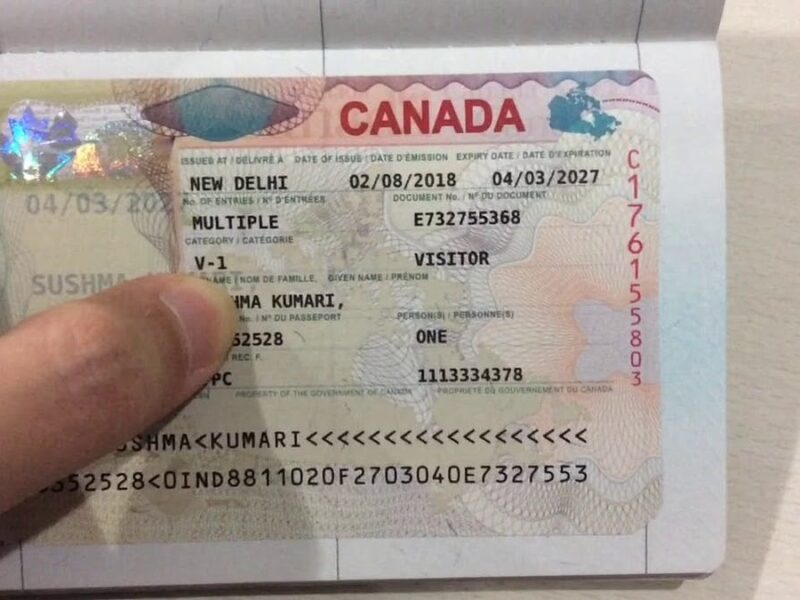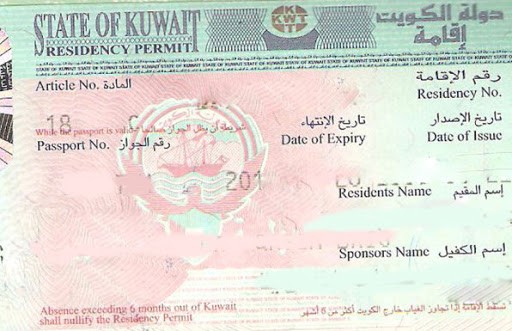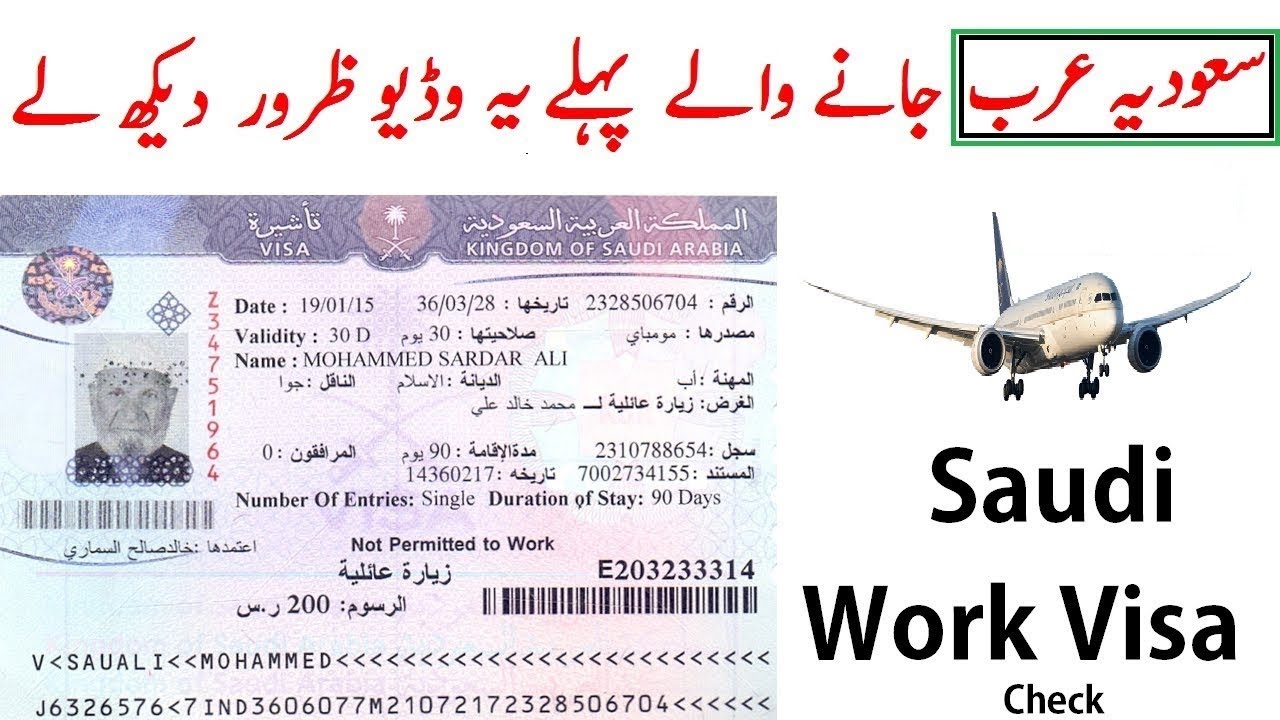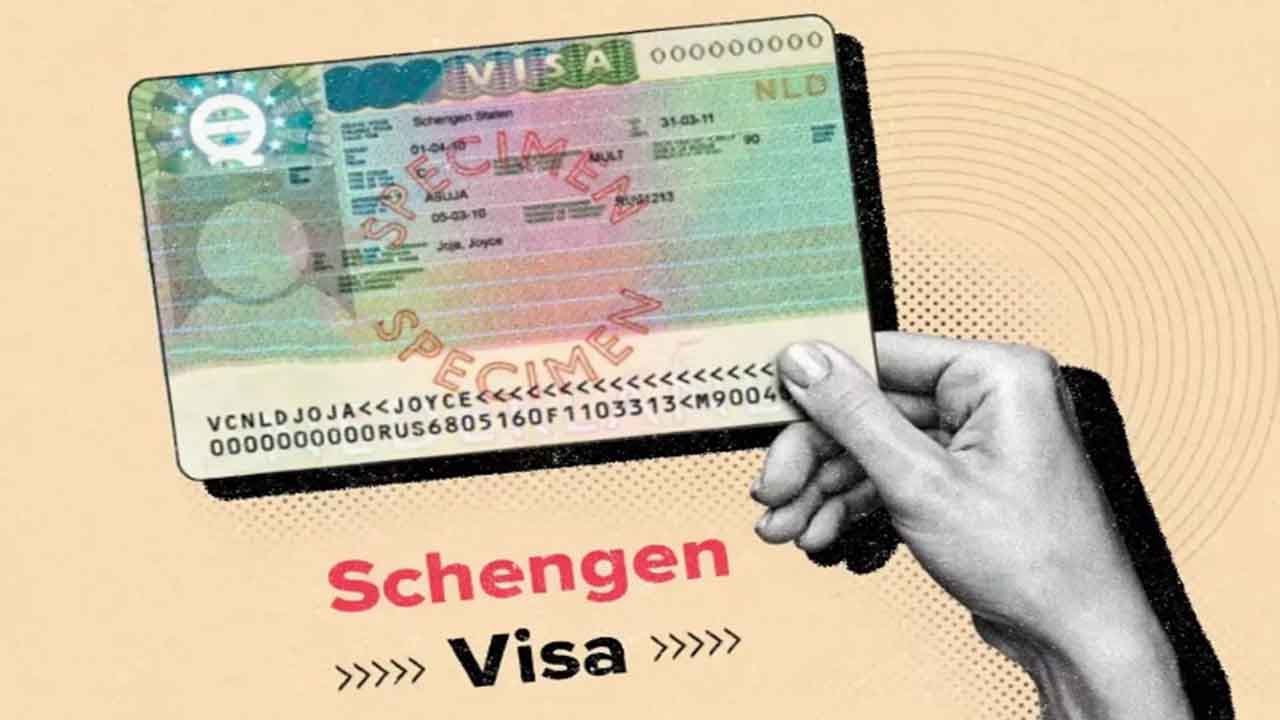For young UK citizens dreaming of adventure, cultural immersion, and career growth, Canada’s International Experience Canada (IEC) program, often referred to as the Youth Mobility Scheme (YMS), is a golden ticket to live and work in the Great White North. This reciprocal visa program allows UK nationals aged 18-35 to explore Canada for up to three years, fostering cultural exchange and professional development. But what happens if you don’t meet the IEC criteria, miss the ballot, or seek other pathways? This article dives into the IEC program and its alternatives for UK citizens, offering a fresh perspective with real success stories, expert advice, and practical steps to make your Canadian dream a reality in 2025. With a blend of personal insights and updated data, we’ll guide you through the options to ensure you find the right visa path.
Why Canada Appeals to UK Citizens
Canada’s allure is undeniable: vast landscapes from Banff’s mountains to Vancouver’s coastlines, a welcoming multicultural society, and a robust job market with opportunities in tech, hospitality, and more. The IEC program, Canada’s equivalent to the UK’s Youth Mobility Scheme, allows young people to work, travel, and study for up to three years (extended from two years in 2024 for UK citizens). With no annual cap for UK applicants and a high approval rate (over 90% in 2024, Canada.ca), it’s a popular choice. But for those ineligible or seeking different paths, alternatives exist to achieve similar goals.
Personal Insight: Having explored Canada’s vibrant cities and connected with expats, I’ve seen how the IEC transforms lives. From skiing in Whistler to networking in Toronto, the experience is unmatched, but alternatives can offer similar rewards if planned strategically.
Understanding the IEC (YMS) Program for UK Citizens
The International Experience Canada (IEC) program offers three categories for UK citizens:
-
Working Holiday: Open work permit for any job, ideal for travel and work flexibility (up to 36 months).
-
Young Professionals: Employer-specific work permit for career-focused roles (up to 36 months).
-
International Co-op (Internship): Employer-specific permit for students in internships (up to 12 months).
Key IEC Eligibility Requirements
-
Age: 18-35 at application (expanded from 30 in 2024).
-
Nationality: Must hold a UK passport.
-
Funds: Proof of CAD$2,500 (approx. £1,450) in savings.
-
Insurance: Comprehensive health insurance for the entire stay.
-
Restrictions: No dependent children under 18; one-time participation per category (max two participations across categories).
Expert Advice: Immigration consultant Sarah Nguyen says, “The IEC’s flexibility is its strength, but the application process is competitive. Submit early in the invitation rounds to secure a spot.”
Application Process
-
Create a Profile: Register in the IEC pool via Canada.ca.
-
Receive Invitation to Apply (ITA): Random selection during invitation rounds (typically January-June).
-
Submit Documents: Passport, police certificate, CV, proof of funds, insurance.
-
Pay Fees: CAD$153 application fee + CAD$100 open work permit fee (Working Holiday).
-
Processing Time: 8-12 weeks, with biometrics required at a Visa Application Centre.
Real Example: Emma, a 24-year-old from London, secured a Working Holiday permit in 2024. She worked as a barista in Vancouver while traveling to Banff, using her CAD$3,000 savings to meet requirements. Her application, submitted in February, was approved in 10 weeks.
Alternatives to the IEC for UK Citizens
If you’re ineligible for the IEC (e.g., over 35, have dependents, or already participated), or if you miss the invitation rounds, several visa alternatives can help you live and work in Canada. Below, we explore the top options tailored for UK citizens.
1. Express Entry (Federal Skilled Worker Program)
The Express Entry system is Canada’s primary pathway for skilled workers seeking permanent residency (PR). It uses a Comprehensive Ranking System (CRS) based on age, education, work experience, and language proficiency.
-
Eligibility: Requires a degree, skilled work experience (e.g., marketing, IT), and English/French proficiency (IELTS/TEF).
-
Process: Create an online profile, receive an ITA based on CRS score, and apply for PR within 60 days.
-
Cost: CAD$1,365 application fee + CAD$500 for right of PR.
-
Timeline: 6-12 months for PR approval.
-
Benefits: Leads to PR and citizenship (after three years of residency).
Example: James, a 36-year-old UK software developer, was ineligible for IEC due to age. He applied through Express Entry in 2024 with a CRS score of 480, securing PR in nine months. He now works in Toronto’s tech hub.
2. Provincial Nominee Program (PNP)
The PNP allows provinces to nominate candidates for PR based on local labor needs. Ontario, British Columbia, and Alberta are popular for UK citizens due to strong job markets.
-
Eligibility: Varies by province; typically requires a job offer or relevant skills (e.g., healthcare, trades).
-
Process: Apply directly to a province or via Express Entry with a nomination (adds 600 CRS points).
-
Cost: CAD$1,500-$2,000, depending on the province.
-
Timeline: 6-18 months.
Example: Sophie, a 32-year-old UK nurse, applied to British Columbia’s PNP in 2025 after securing a job offer in Vancouver. Her nomination boosted her CRS score, leading to PR in 10 months.
3. Study Permit
A Study Permit allows UK citizens to study at Canadian institutions, often leading to work opportunities via the Post-Graduation Work Permit (PGWP).
-
Eligibility: Acceptance at a Designated Learning Institution (DLI), proof of funds (CAD$20,635/year), no criminal record.
-
Process: Apply online with acceptance letter, financial proof, and study plan.
-
Cost: CAD$150 application fee.
-
Benefits: PGWP allows work for up to three years post-study, potentially leading to PR via Express Entry.
Example: Liam, a 29-year-old from Manchester, enrolled in a two-year master’s program at UBC in 2024. After graduating, he secured a PGWP and a marketing job, applying for PR in 2025.
4. Temporary Foreign Worker Program (TFWP)
The TFWP offers employer-specific work permits for UK citizens with a job offer, often in high-demand fields like construction or hospitality.
-
Eligibility: Job offer with a Labour Market Impact Assessment (LMIA) from a Canadian employer.
-
Process: Employer applies for LMIA; candidate applies for work permit.
-
Cost: CAD$155 work permit fee + CAD$1,000 LMIA fee (employer-paid).
-
Timeline: 2-4 months.
Insight: The TFWP is ideal for those with specific skills but requires employer commitment. Networking on LinkedIn or job boards like Indeed can help secure offers.
5. Visitor Visa with Work Authorization
For short-term stays, a Visitor Visa or Electronic Travel Authorization (eTA) allows UK citizens to visit Canada for up to six months, with limited work options via permits like the Working Holiday (if IEC-eligible).
-
Eligibility: Valid UK passport; eTA for air travel (CAD$7).
-
Process: Apply online for eTA; seek work permits if eligible.
-
Benefits: Quick approval for tourism; can explore job prospects.
Expert Advice: Consultant Mark Davies notes, “A Visitor Visa can be a stepping stone. Use it to network in Canada, then transition to a work permit or study permit.”
Table 1: IEC vs. Alternative Visa Options
|
Visa Type |
Duration |
Eligibility |
Cost (CAD) |
Path to PR |
|---|---|---|---|---|
|
IEC (Working Holiday) |
Up to 36 months |
18-35, UK citizen, CAD$2,500 |
$253 |
No |
|
Express Entry |
Permanent |
Skilled experience, degree, language |
$1,865 |
Yes |
|
PNP |
Permanent |
Job offer, provincial criteria |
$1,500-$2,000 |
Yes |
|
Study Permit + PGWP |
1-3 years (PGWP) |
DLI acceptance, CAD$20,635/year |
$150 + tuition |
Yes |
|
TFWP |
1-2 years |
LMIA job offer |
$155 |
Possible |
Navigating the Application Process
Each visa has unique requirements, but general steps include:
-
Research Eligibility: Confirm you meet criteria (e.g., age, funds, qualifications).
-
Gather Documents: Passport, bank statements, police certificates, job offers, or acceptance letters.
-
Apply Online: Use Canada.ca or provincial portals; pay fees and submit biometrics.
-
Prepare for Delays: Processing times vary (e.g., 8 weeks for IEC, 12 months for Express Entry).
-
Plan Arrival: Secure housing and insurance before moving.
Personal Insight: I’ve spoken with UK expats who stress preparation. One missed a PNP deadline due to incomplete documents, delaying their move by six months. Double-check requirements!
Challenges and Solutions
-
Challenge: IEC ballot competition.
-
Solution: Apply early in the invitation rounds (January-February) and consider alternatives like PNP if missed.
-
-
Challenge: High costs for Express Entry or study permits.
-
Solution: Budget for fees and explore scholarships or employer-sponsored LMIAs.
-
-
Challenge: Job offer requirements for TFWP or PNP.
-
Solution: Use job boards like WorkBC or network at Canadian career fairs in the UK.
-
Expert Advice: Lawyer Priya Sharma advises, “For Express Entry, maximize your CRS score with language tests and additional education. Every point counts.”
Living in Canada: What to Expect
Canada’s cost of living varies: Toronto averages CAD$2,000-$3,000/month, while smaller cities like Halifax are cheaper (CAD$1,500-$2,200, Numbeo, 2025). UK citizens enjoy:
-
Cultural Diversity: Over 160 nationalities create vibrant communities.
-
Job Opportunities: High demand in tech, healthcare, and hospitality.
-
Lifestyle: Ski in Whistler, hike in Banff, or explore Montreal’s festivals.
Example: Chloe, a 27-year-old UK graphic designer, used her IEC Working Holiday visa to work in Calgary. She saved CAD$10,000, explored the Rockies, and transitioned to a PNP for PR in 2025.
Table 2: Cost of Living in Key Canadian Cities (2025)
|
City |
Rent (1-Bedroom, CAD) |
Food (CAD) |
Transport (CAD) |
|---|---|---|---|
|
Toronto |
$2,000-$2,800 | $400-$600 | $150-$200 |
|
Vancouver |
$2,100-$3,000 | $400-$700 | $120-$180 |
|
Halifax |
$1,200-$1,800 | $300-$500 | $80-$120 |
Transitioning to Permanent Residency
The IEC doesn’t lead to PR, but alternatives like Express Entry, PNP, or PGWP offer pathways. Approximately 15% of IEC participants from the UK transitioned to long-term visas in 2024 (Migration Observatory). Key steps:
-
Gain Canadian Experience: Work or study to boost CRS points.
-
Improve Language Skills: Take IELTS for higher scores.
-
Secure a Job Offer: Employer sponsorship enhances PNP or Express Entry chances.
Table 3: Pathways to Permanent Residency
|
Pathway |
Key Requirement |
Processing Time |
Success Rate (2024) |
|---|---|---|---|
|
Express Entry |
High CRS score (400+) |
6-12 months |
85% |
|
PNP |
Provincial nomination, job offer |
6-18 months |
80% |
|
PGWP to PR |
Canadian degree, work experience |
12-24 months |
70% |
Call to Action: Start Your Canadian Adventure
Whether you pursue the IEC or an alternative like Express Entry, Canada offers unparalleled opportunities for UK citizens. Take these steps today:
-
Assess Eligibility: Check IEC or alternative visa criteria on Canada.ca.
-
Consult Experts: Contact firms like VisaPlace or Latitude Law for guidance.
-
Apply Early: Beat deadlines for IEC rounds or other programs.
-
Plan Finances: Save for fees, travel, and initial costs.
Don’t wait—explore the YMS visa Canada alternative and start your journey! Visit Canada.ca or getgis.org for expert support now.
Frequently Asked Questions (FAQs)
-
What is the IEC program for UK citizens?
The IEC (International Experience Canada) allows UK citizens aged 18-35 to live, work, or study in Canada for up to three years under Working Holiday, Young Professionals, or Co-op categories. -
Can I apply for IEC if I’m over 35?
No, but alternatives like Express Entry or PNP are available for older applicants with skilled experience or job offers. -
How much money do I need for the IEC?
CAD$2,500 in savings, plus funds for insurance and travel (approx. CAD$5,000 total recommended). -
What if I miss the IEC invitation rounds?
Explore Express Entry, PNP, or Study Permits as alternatives, or wait for the next IEC round (typically January). -
Can I bring my family on an IEC visa?
No, dependents under 18 are not allowed. Family members may apply separately for other visas. -
How long does IEC processing take?
8-12 weeks after receiving an Invitation to Apply, including biometrics. -
Can I switch from IEC to permanent residency?
Not directly, but Canadian work experience from IEC can boost Express Entry or PNP applications. -
What jobs can I do on the IEC Working Holiday visa?
Any job except professional sports or coaching; no employer sponsorship required. -
Is a job offer required for Express Entry or PNP?
Not mandatory for Express Entry but boosts CRS points. Most PNPs require a job offer. -
What are the costs of a Study Permit?
CAD$150 application fee, plus tuition (CAD$15,000-$30,000/year) and living expenses.
Sources
-
Canada.ca. (2025). International Experience Canada: Who Can Apply.
-
Migration Observatory. (2025). Youth Mobility Scheme.
-
GetGIS. (2025). UK vs Canada: Which is Better for Immigration in 2025?
-
Numbeo. (2025). Cost of Living in Canada.










